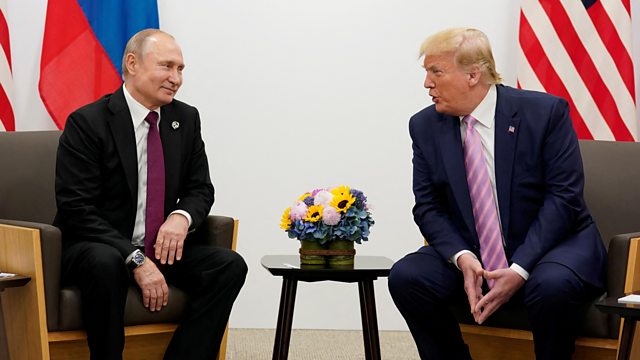Former President Donald Trump has sharply criticized Russian President Vladimir Putin, labeling him “crazy” in response to the recent bombardment of Ukraine. This blunt assessment adds a fresh dimension to the ongoing global discussion about the conflict and leadership styles influencing it.
Trump’s Unfiltered Take on Putin
In a public statement, Trump did not hold back. The former president’s direct language reflects both his style and a frustration with Putin’s aggressive actions in Ukraine. Trump described Putin’s decision to continue heavy bombardment as irrational and reckless, using the word “crazy” to underline his disapproval.
This is notable because Trump has often been accused of showing a softer stance toward Russia during his presidency. Yet, the current conflict appears to have shifted his tone, with Trump now publicly rebuking Putin’s military tactics. His remarks suggest a recognition of the severe humanitarian and geopolitical consequences the war has unleashed.
The Context: Ukraine Under Fire
The Russian bombardment in Ukraine has intensified recently, targeting major cities and infrastructure. Civilians are caught in the crossfire, and the international community remains alarmed by the escalating violence. Putin’s actions have drawn widespread condemnation, sanctions, and calls for ceasefire negotiations.
Trump’s use of the word “crazy” captures the sentiment of many observers who see Putin’s moves as dangerous gambles that threaten global stability. The bombardment does not only impact Ukraine but also has ripple effects on global energy markets, alliances, and diplomatic relations.
Why Trump’s Criticism Matters
Trump’s rebuke is more than just colorful rhetoric—it carries weight given his influence in conservative and Republican circles. His stance might shape how his base perceives the Russia-Ukraine conflict and influence future U.S. policy discussions.
Additionally, Trump’s harsh critique contrasts with earlier periods when his administration was accused of being too soft or ambivalent toward Putin. This shift signals a hardening viewpoint in light of Putin’s aggressive military campaign in Ukraine.
What Comes Next?
While Trump’s words add fuel to the debate, the situation on the ground remains complex. Russia’s military actions continue, and diplomatic efforts face significant challenges. Observers will be watching closely to see how this public rebuke influences political alliances and the broader conversation about Russia’s role on the world stage.
For readers following the conflict, Trump’s direct condemnation underscores the high stakes and unpredictable nature of this ongoing crisis. It’s a reminder that global leadership and its decisions can have profound consequences, often described bluntly when the stakes are this high.



